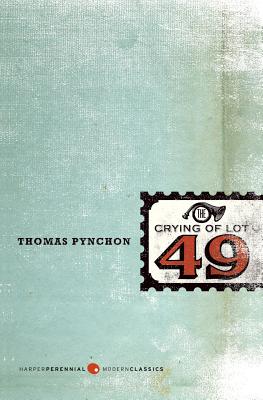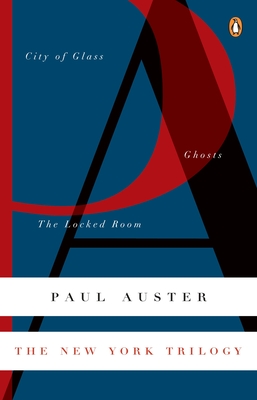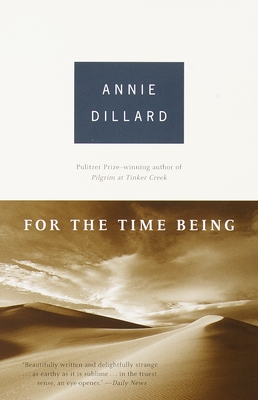TCD has a nice summer list piece by Amy Elliott up currently on the front page, featuring former Schwartzies of all stripes (Dave Mallman, buyer = awesome!), including yet to open former Schwartzies. Plus, NPR is pimping there list.
One of the regular drawbacks of lists from booksellers is what I call the "we're really trying to sell this book now (maybe because we;re getting co-op $$) and while we're not all that excited about this book, we can certainly pretend to be" factor. In reality, I've found indie booksellers do a good job of avoiding selling their souls via the short rec or newsletter review - but I'd be lying if I said it didn't happen, even in MKE.
So, I thought I'd follow suit with a similar list, plus variation, my version, hopefully free of swag-related influence*. I hope other Flappers will chime in, maybe even by editing this post to add their hand picks. (Can ex-booksellers still hand "sell"? Well, some current booksellers would be encouraged to participate, too)
Books Recommended
(* If you have swag to offer, please email me or leave a comment; I can produce a review of a book I've never read in about two days, if provided marketing materials.)
--
"Short" List - books you can kill in a matter of days, if not hours...
One of my perpetual favorites,
The Invention of Morel, by Adolpho Bioy Casares.

This is short (a few more than 100 pages) and will be read very quickly. It's a genre-bender that mostly lives in a fantastical dream world of an un/inhabited island. The main character, fleeing some law ins some country (murder!?!) takes refuge on the island, discovers a mysterious and luxurious hotel with enigmatic contraptions (kind of like a bizarre mechanical heart for the building/island) and is then joined by visitors, led by the bizarre Dr. Morel, that may or may not see him, that may or may not be real, or that may or may not be existing at the same time that the main character is existing.
Sure, it sounds like a *lot* to cover in 100 pages - and it is. However, Borges is right in calling this novella a work of masterful plotting. because, well, it is able to connect all of these narrative "contraptions" and "inventions" into a slippery adventure-mystery-fantasy. And, really, who are we to argue with Borges?
Another all-time fave short work is the equally masterful
Crying of Lot 49, by Thomas Pynchon. It's funny, absurd, mysterious and euphoric - and ultimately intriguing and mind-bending enough to keep you thinking about it
longer than you'll think about
The Invention of Morel - which, in estimate, is a very, very, very, very, very long time. The story of Oedipa Maas' execution of a will (her will? - oh Tom, stop it now!), this novel/ella (ella, ella, eh, eh, eh) moves quickly and hilariously from bizarro psychedelic rock bands and child actors watching discontinuous orderings of old films, to cigarette filter conspiracies, to philatelia, Jacobian revenge plays, and the exposure of a world-wide secret society/postal system - all while looki ng for Pierce Inverarity's inverse rarity. Hilarity - and a completely enjoyable, mesmerizing variety of vertigo - ensues.
Plus, you get the added benefit of saying you read a Pynchon novel! And without fighting the joys and traps of Gravity's Rainbow - which you should do, too.
City of Glass is another shortie novella, a semiotic sleuth story, by Paul Auster,
who our kids will likely be reading in college, since he's a white American male. As an added bonus, he's also a great storyteller and this,
City of Glass, and the rest of the New York Trilogy are very good: entertaining, fast-paced, bending the typical genre trappings of both gumshoe and intellectual puzzle. A large part mystery, this meta-work explores authorship, identity and the descent into madness that is usually glossed over in the PI's search for intimate and complete knowledge.
Bonus: if you like this, which you will, obviously, you'll also read The Book of Illusions, a longer work by Auster that is more novel-ly in a "literary" fiction way, but just as experimental and contemplative - and meta, of course.
"Short-ish" - books that look long, but really are short on closer inspection...
When I read Annie Dillard's
For the Time Being, it was a squat square of a hardcover, almost a board book of short, insightful natural (as in "nature") travelogue and sometimes-converging observations. The great part about this series of meditations is that they can be consumed as just that: short little bits of beautiful writing. Yet, if you'd like, you can also explore a more connected reading, mapping convergences - or, better, using Dillard's prompts, you can make your own meaning. Kind of a DIY-aesthetic, if you will.
I read
Black Swan Green while on my honeymoon, which was great (in both ways). And, in honor of Bayard and Sarah's wedding on Sunday, I'm going to recom

mend it as summer reading. Plus, Bayard loves this book, too, as do many other former Schwartzies. This is David Mitchell's follow-up to the (as-yet-unread-but-I-hear-it's-[and-is-on-my-short-list-of-long-books-]) fabulous
Cloud Atlas, a coming-of-age story of a boy in England, discovering all is not what it seems, making unlikely friendships and navigating the trials of family life and strife. This is one of those books you really, truly won't want to put down and might not. It's well-paced and populated with, what seems while reading, all the "right" people, places and problems.
Coming soon: the "Long" books... and more lists!
 This is short (a few more than 100 pages) and will be read very quickly. It's a genre-bender that mostly lives in a fantastical dream world of an un/inhabited island. The main character, fleeing some law ins some country (murder!?!) takes refuge on the island, discovers a mysterious and luxurious hotel with enigmatic contraptions (kind of like a bizarre mechanical heart for the building/island) and is then joined by visitors, led by the bizarre Dr. Morel, that may or may not see him, that may or may not be real, or that may or may not be existing at the same time that the main character is existing.
This is short (a few more than 100 pages) and will be read very quickly. It's a genre-bender that mostly lives in a fantastical dream world of an un/inhabited island. The main character, fleeing some law ins some country (murder!?!) takes refuge on the island, discovers a mysterious and luxurious hotel with enigmatic contraptions (kind of like a bizarre mechanical heart for the building/island) and is then joined by visitors, led by the bizarre Dr. Morel, that may or may not see him, that may or may not be real, or that may or may not be existing at the same time that the main character is existing. mend it as summer reading. Plus, Bayard loves this book, too, as do many other former Schwartzies. This is David Mitchell's follow-up to the (as-yet-unread-but-I-hear-it's-[and-is-on-my-short-list-of-long-books-]) fabulous Cloud Atlas, a coming-of-age story of a boy in England, discovering all is not what it seems, making unlikely friendships and navigating the trials of family life and strife. This is one of those books you really, truly won't want to put down and might not. It's well-paced and populated with, what seems while reading, all the "right" people, places and problems.
mend it as summer reading. Plus, Bayard loves this book, too, as do many other former Schwartzies. This is David Mitchell's follow-up to the (as-yet-unread-but-I-hear-it's-[and-is-on-my-short-list-of-long-books-]) fabulous Cloud Atlas, a coming-of-age story of a boy in England, discovering all is not what it seems, making unlikely friendships and navigating the trials of family life and strife. This is one of those books you really, truly won't want to put down and might not. It's well-paced and populated with, what seems while reading, all the "right" people, places and problems.






























